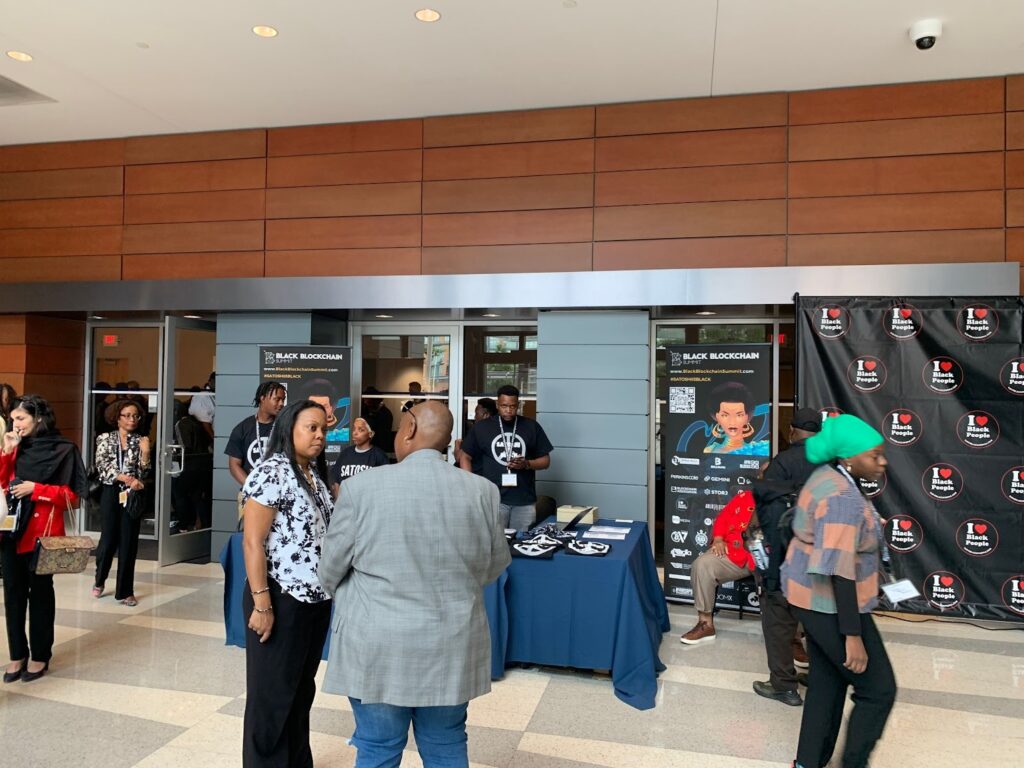Howard hosts the fifth annual Black Blockchain Technology Summit – The Hilltop

Howard University hosted its fifth annual Black Blockchain Summit. The Black Blockchain Summit is a conference that brings people together to learn and connect with other black people about the Blockchain technology and cryptocurrency areas. The student organization DAO labs (Decentralized Autonomous Organization) also started its first hackathon and pitch competition at the summit.
From September 22nd to September 24th, the 5th Annual Black Blockchain Summit kicked off at Howard University’s Interdisciplinary Research Building located on Georgia Avenue with hundreds of people in attendance. The summit included a series of fireside chats, discussion panelists and speakers from diverse backgrounds discussing topics on blockchain technology, investment, software development, research, policy, education and the ways black people and people in the African diaspora can use them to their advantage in social, economic and environmental settings.
According to the Harvard Business Review, “…blockchain is an open, distributed ledger that can record transactions between two parties efficiently and in a verifiable and permanent manner. The ledger itself can also be programmed to trigger transactions automatically.” Blockchain technology is known for its role with cryptocurrency such as Bitcoin. Blockchain is known for maintaining secure and decentralized records of transactions.
The Black Blockchain Summit first began in 2018 and was organized by Sinclair Skinner, an entrepreneur, mechanical engineer and Howard alumnus. This year’s summit also included a memorial service to honor founder, STEM advocate and Howard alumnus Dr. Gary L. Harris for his contributions to creating a space for black innovators and students in these areas.
Many of the panelists included companies such as Gemini, Galaxy, Citi, Bithub.Africa, the Blockchain Association, the Black Woman Blockchain Council, and a number of Black-owned startups.
Skinner emphasized the importance of exposing and educating the black community to these topics for the purpose of emancipation and ownership.
“There are 1.5 billion black people on the planet. That’s a good amount of people, if we can free that, we can probably help free everybody else,” Skinner said.
“Literally, we think it’s important to use every tool that we have available to use for this liberation, and one of those tools that we think is the blockchain,” he said. “This particular technology is super scalable and gives us the opportunity to exploit it and free as many of our people as possible.”
Speaking on a panel, CEO of the Blockchain Foundation Cleave Mesidor said, “We have black people coming from all over the country, from Ohio … El Paso, from everywhere, but we also have, you know, a delegation that comes from the continent of Africa” She has focused on working with cryptocurrency for six years and spoke about the importance of black and brown individuals being included in the blockchain and cryptocurrency industry.
“Black and Latino people are using Blockchain technology to solve problems, to tackle inequities. For us, it’s always been about ownership and empowerment. It’s about creating opportunities, and that’s what this conference is about.”
In addition to the summit, HU DAO Labs, a Howard student organization, hosted its first Yardhack and Pitch competition from 19.00 23 September until 14.00 24 September. The purpose of the competition was to incorporate a system called Whive.io, an open source peer-to-peer blockchain protocol, in whatever way they chose.
Team 3, the winners of HU DAO Lab’s first YardHack, presented their product called NAC (Notarized Art Co-op) composed of Junior Micheal Scholis, Junior Annia Matthews and Junior Olivia Washington.
When asked about inspiration and how the team developed the concept within the limited time frame, one team member, Michael Scholis, a 21-year-old junior interdisciplinary studies major from Monterey, California, explained how the idea was already in the works.
“To be honest, I’ve been thinking about this since last spring at our event called Future Proof. So it’s been in the works all summer,” said Scholis.
“So this is a platform for us, a platform for us to speak in a space that is comfortable and open to hearing us and receptive to our ideas. We had some interest in continuing this idea with consulting and further investment , he said.
Team member Olivia Washington and Annia Matthews agreed and expressed that this experience would be something they will take with them as they continue their journey with HU DAO labs.
“For me personally, I was like ‘I have nothing to do with this, I don’t belong in this area’ … it just opened my eyes to the possibilities of DAO” said Olivia Washington, a junior marketing student. “You don’t need to know anything about Web3, you could have learned about it yesterday and you still have the opportunity in the room, it’s been very encouraging and I feel good.
Araj Shah, a 19-year-old computer science freshman from Nepal said. The team he was part of, Team 2, came second in the competition.
– The feedback was quite good. I mean, we worked pretty hard and we expected first place, but that’s okay,” Shah said. “ I feel what we have done is very good and I am very proud of our team. And what we have done, and we look forward to working more on it.”
Another member of Team 2, 20-year-old first-year computer science student from Nepal Rahual Rai, agreed with Shah about the positive experience they gained.
“At the end of the day, it was the friendship we made along the way,” Shah said.
HU DAO labs is working to ensure engagement with members and that everyone is aware of the opportunities to participate in events similar to this year’s Black Blockchain Summit. In the past, the summit has been held many times on Howard’s campus and will be held again next year at Howard University, the date of which is unspecified.
Copy edited by Chanice McClover-Lee


